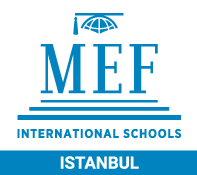Students develop the four language skills – listening, speaking, reading, and writing in Modern Foreign Language courses. Language lessons are communicative, and active participation is expected. Topics common to most courses include family and friends, school and education, leisure activities and hobbies, daily routine, health, holidays and tourism. Course outlines highlight key teaching points, and we adapt our own material to these accordingly.
From grades 9 to 12 we offer these courses:
- Cambridge IGCSE French Foreign Language and Spanish Foreign Language
- IB Language Ab Initio – French and Spanish (SL)
- IB Language B – French B and Spanish B (SL, HL)
The Cambridge IGCSE Foreign Language programme is a two year-course based on a curriculum in which reading, writing, speaking and listening in the target language are a focus of the daily learning experience. Students practice spontaneous oral and written communication. Students are strongly encouraged to speak in the target language. Teaching methods extend beyond the textbooks, as teacher creativity is prized. Students are regularly assessed on all the linguistic components in a variety of meaningful formats.
The IB Language Ab initio – French and Spanish are two-year foreign language courses in grades 11 and 12 that are designed for students with little or no prior experience in the target language.
The Language Ab initio course is organized into five themes:
- Identities
- Experiences
- Human ingenuity
- Social organization
- Sharing the planet
Each theme has a list of topics that provide the students with opportunities to practise and explore the language as well as to develop intercultural understanding. Through the development of receptive, productive and interactive skills, students should be able to respond and interact appropriately in a defined range of everyday situations.
IB Language B – French B and Spanish B are two-year foreign language courses designed for Grade 11 and 12 students with some previous experience in the language.The main focus of these courses is on language acquisition and development of the four primary language skills: listening, speaking, reading and writing. These language skills are developed through the study and use of a range of written and spoken material as well as by audio-visual stimuli. Such material will extend from everyday oral exchanges to literary texts. It will oftentimes relate to the culture(s) concerned. The material is chosen in order to enable mastery of the previously mentioned language skills and to make the language a communicative and analytical tool in a wide variety of contexts. It is not intended solely for the study of subject-specific matter or content but rather as an efficient communicative tool.
Although the nature of Language B is the same for both Higher Level (HL) and Standard Level (SL), the two levels differ in the depth and breadth of the language used.
The Language B course is organized into five themes:
- Identities
- Experiences
- Human ingenuity
- Social organization
- Sharing the planet
The aims of IB Language B and Language ab initio are to:
- develop students’ intercultural understanding
- enable students to understand and use the language they have studied in a range of contexts and for a variety of purposes
- encourage, through the study of texts and through social interaction, an awareness and appreciation of the different perspectives of people from other cultures
- develop students’ awareness of the role of language in relation to other areas of knowledge
- develop students’ awareness of the relationship between the languages and cultures with which they are familiar
- provide students with a basis for further study, work, and leisure through the use of an additional language
- provide the opportunity for enjoyment, creativity, and intellectual stimulation through knowledge of an additional language.



